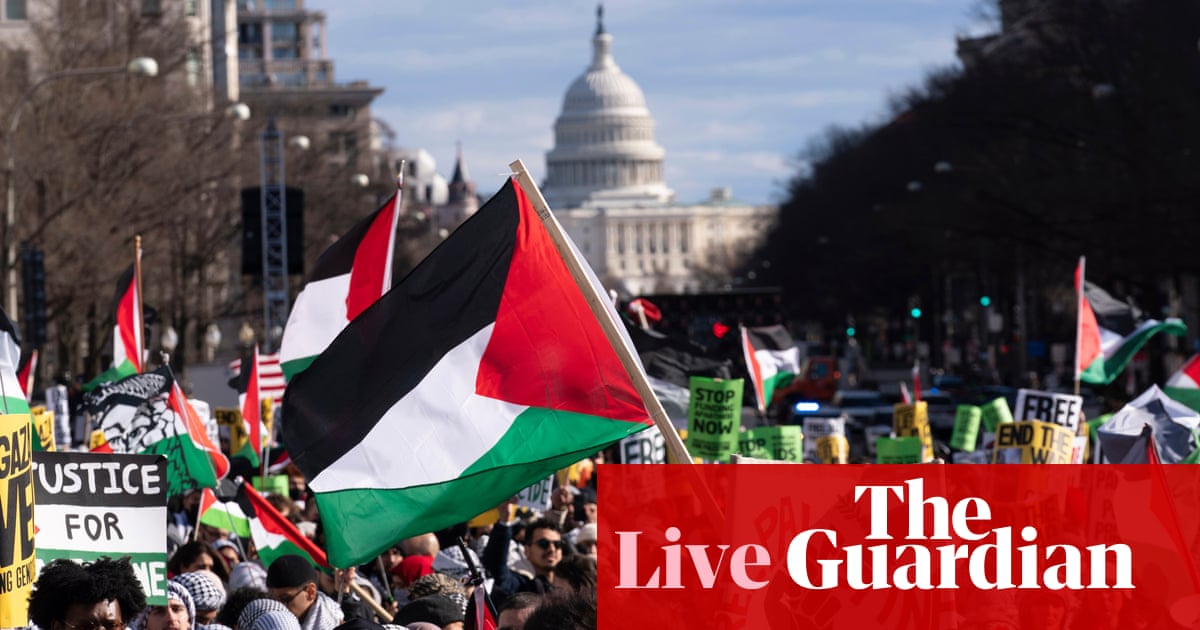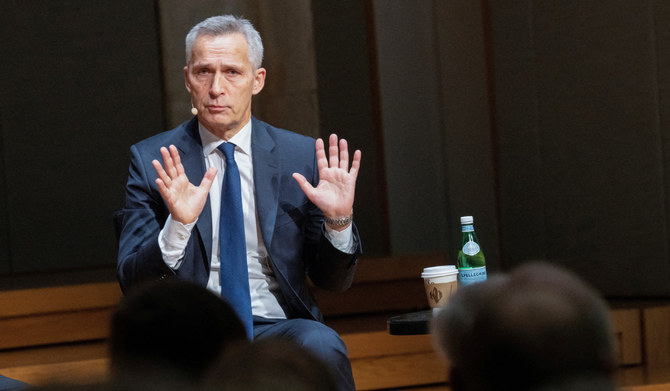
According to the 20th Amendment of the US Constitution, the president’s term in office ends, and a successor’s term begins, at noon on Jan. 20. But the world does not stop for this event. All of the geopolitical challenges facing America at 11:59 a.m. on that day will remain at 12:01 p.m. This is why an incoming administration has to be able to hit the ground running.
Of course, the in-tray will be full when President-elect Joe Biden takes office. At the top of his list of priorities is the coronavirus (COVID-19) pandemic and the fragile and divisive domestic situation in the US. In terms of foreign policy, there will be a major focus on China and Russia.
However, one of the first areas of foreign policy in which the Biden administration will be challenged and tested, by friends and foes alike, is the Middle East.
Frankly, the Obama administration was not trusted by many in the region — especially in its final years. Most in the Gulf viewed the nuclear deal with Iran as America selling out its partners to a rogue regime. Meanwhile, red lines drawn by President Barack Obama in Syria were routinely crossed with no consequences. The US looked weak in the region.
So it is only natural that America’s partners in the Middle East will wonder how committed Biden will be to the region. Its adversaries, meanwhile, will want to test the resolve of the new administration. After all, while the Arab world was breathing a sigh of relief after the killing of Qassem Soleimani, commander of the Islamic Revolutionary Guards Corps’ Quds Force, Biden publicly criticized the assassination.
As the next administration develops its Middle East strategy there are three areas in which it needs to build on Donald Trump’s achievements in the region.
The first is Iran and the future of the 2015 nuclear deal, more formally known as the Joint Comprehensive Plan of Action (JCPOA). This will be the biggest and most immediate foreign policy challenge for the incoming administration in the Middle East. The JCPOA, signed by Iran and the five permanent members of the UN Security Council plus Germany in 2015, has not succeeded in moderating or changing Iran’s behavior in the region in any positive way.
Trump’s withdrawal from the JCPOA in 2018 was controversial but necessary. The fundamental flaw in the original agreement was that none of Iran’s malign activities outside of its nuclear program were addressed. Also, the sunset clauses regarding issues such as uranium enrichment meant that the agreement cannot prevent Iran from developing a nuclear weapon — it merely delays the process. This is unacceptable.
It is unclear what the incoming administration will do regarding the JCPOA. The situation has moved on since 2015 and it would be very difficult for the US to simply return to the deal. Furthermore, the pressure Trump placed on the Iranian regime through restored sanctions creates beneficial conditions for future talks with Iran. However, if the next administration chooses the path of negotiation, it should seek a comprehensive deal that includes not only Iran’s nuclear program but also its export of terrorism and its ballistic missile program.
The second area in which Biden should build on Trump’s successes is the process of normalization of relations between Arab states and Israel. The historic diplomatic breakthrough that resulted in the UAE, Bahrain, Sudan and Morocco agreeing to establish diplomatic relations with Israel is perhaps one of the greatest foreign policy accomplishments of the Trump administration.
Clearly there is momentum in the direction of further agreements. As other countries in the region see the economic and trade benefits they bring, more are likely to follow suit. The next administration should pick up where Trump left off and continue to encourage more states to establish diplomatic and economic relations with the Israelis. In the long term, this can only bring stability and peace to the region.
The third area is the Middle East Strategic Alliance (MESA). It was proposed by the Trump administration with the goal of improving military capabilities and burden-sharing in the Gulf. Beyond the security component, there is also a need for greater economic cooperation between the US and Gulf nations. This will be especially true when the world enters a post-COVID era of economic recovery.
The pressure Trump placed on the Iranian regime through restored sanctions creates beneficial conditions for future talks with Iran.
Luke Coffey
Many challenges remain before MESA can be established. There is no agreement between Gulf nations about what the most pressing security threat is. Some think it is Iran, others do not. There are also disagreements about the very purpose of MESA. Some states want it to focus more on economics and trade, others want the main aims to be security and defense. Washington has been unable to reconcile these different views. Whatever the challenges, MESA represents a noble goal and the Biden administration should not abandon it.
There is no doubt that events in the Middle East will quickly challenge the new administration. Of course, Trump did not get everything right in the region — but partisan politics should be confined to domestic matters. Where the Trump administration made progress in the Middle East, the Biden administration should not be afraid to acknowledge this and build on the success.
If Biden adopts this realistic and reasonable approach, it will benefit the US and its partners in the Middle East.
Luke Coffey is director of the Douglas and Sarah Allison Center for Foreign Policy at the Heritage Foundation. Twitter: @LukeDCoffey
Disclaimer: Views expressed by writers in this section are their own and do not necessarily reflect Arab News" point-of-view












